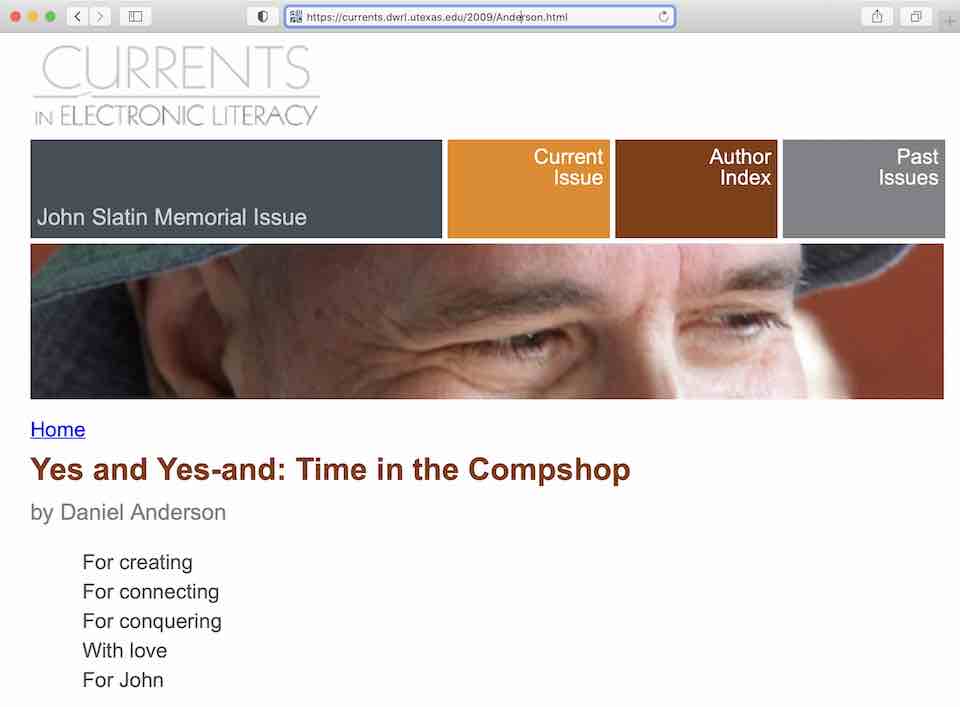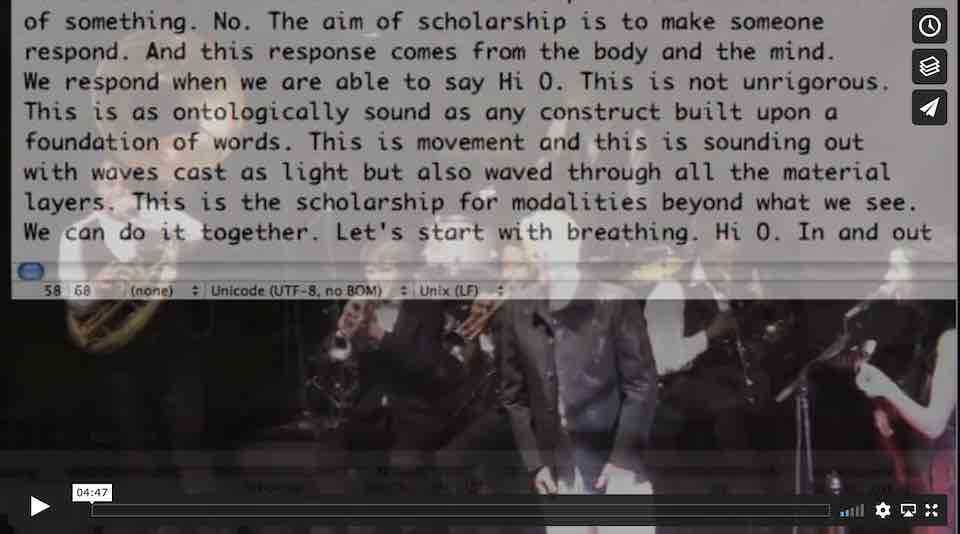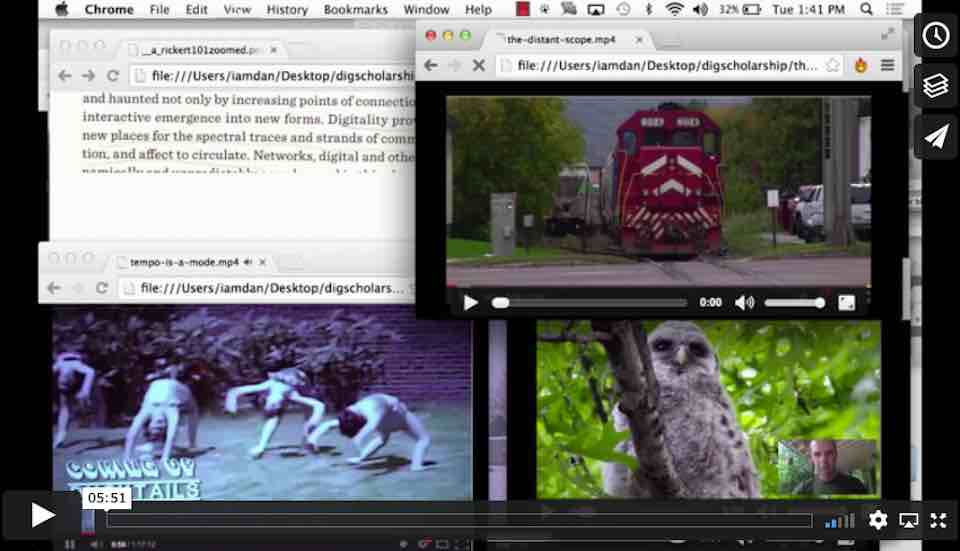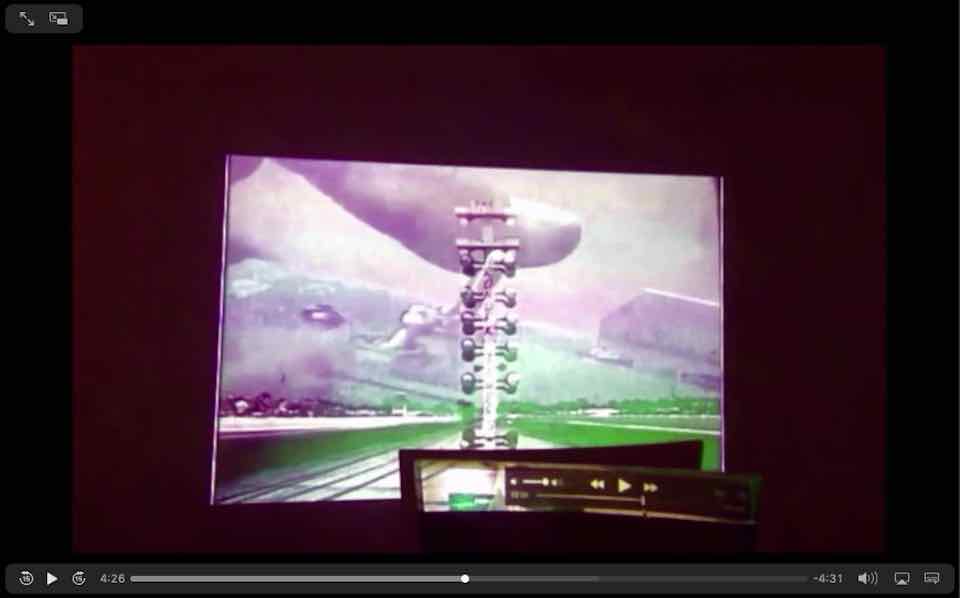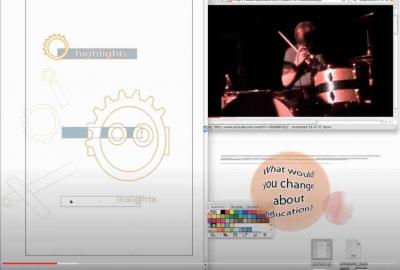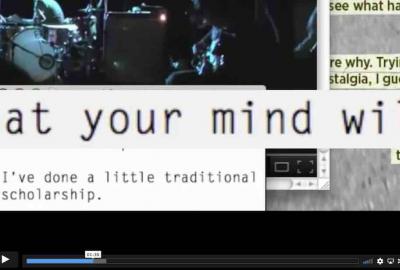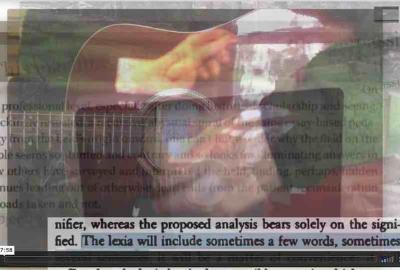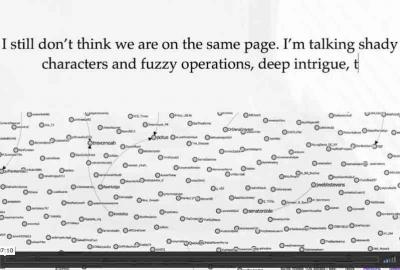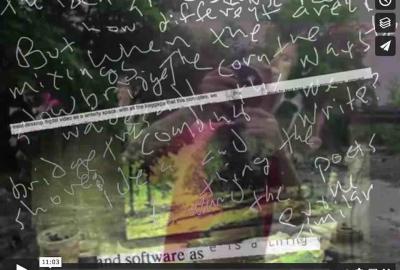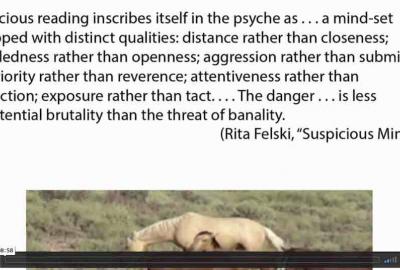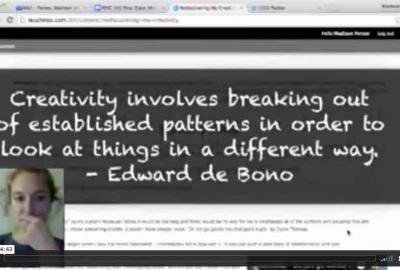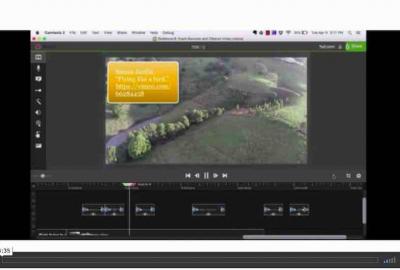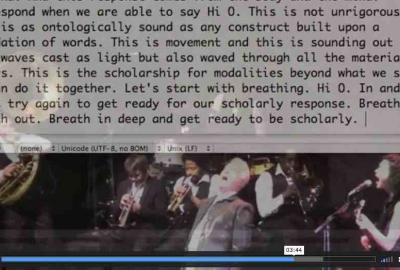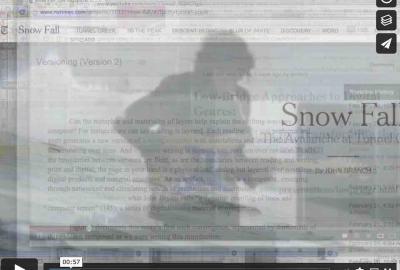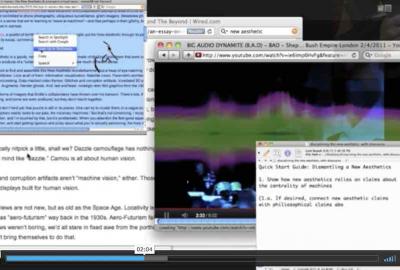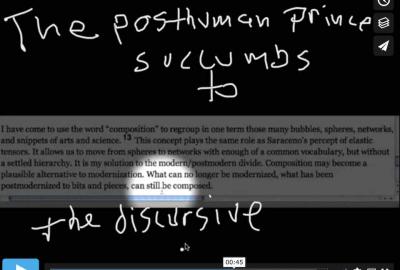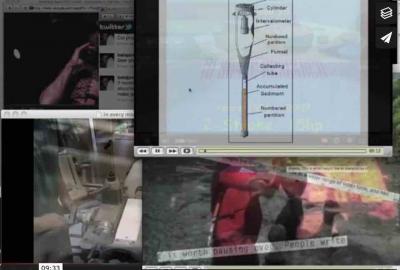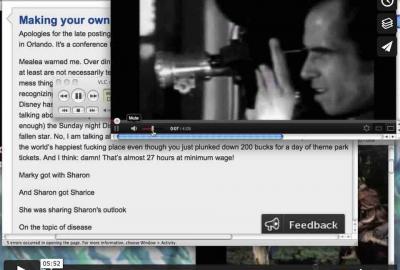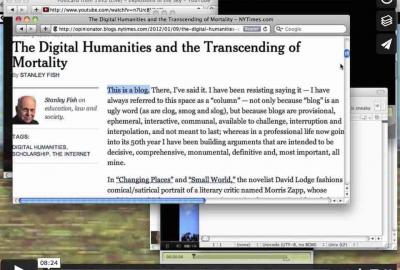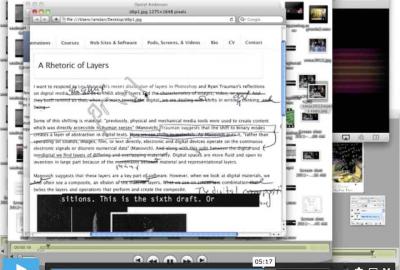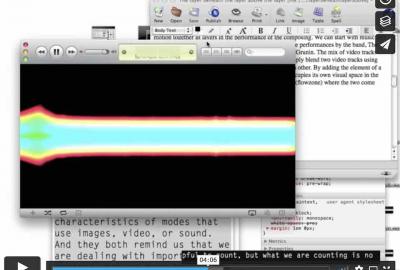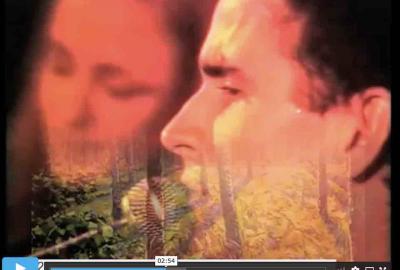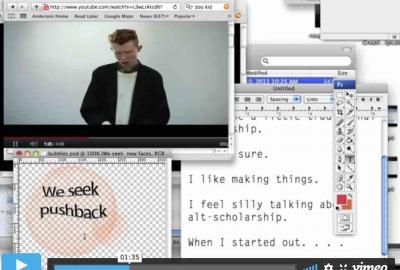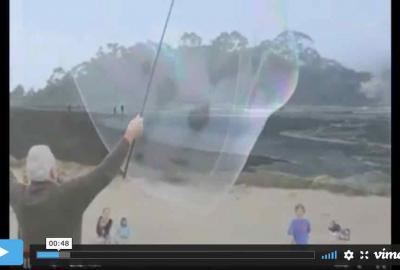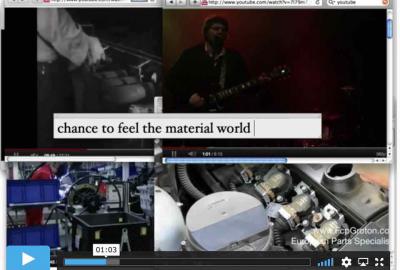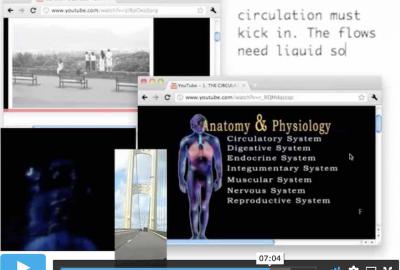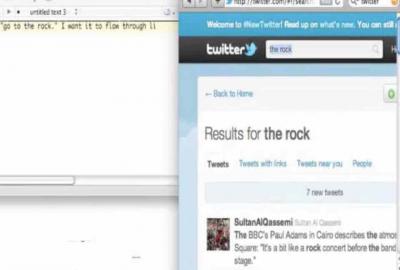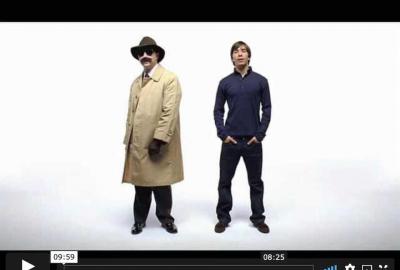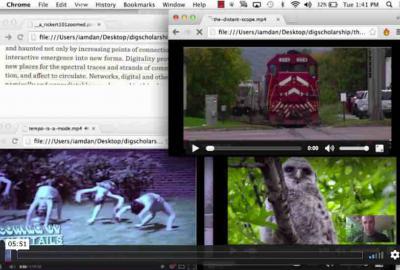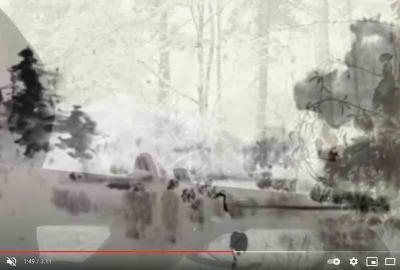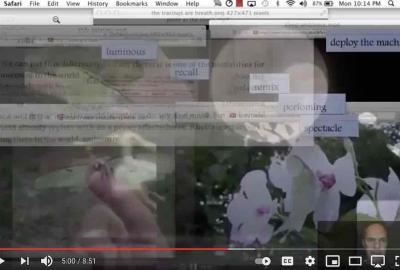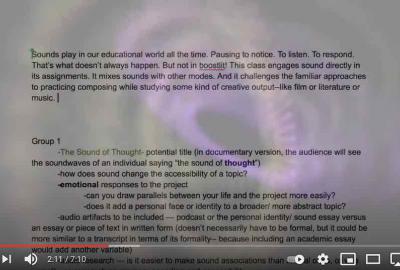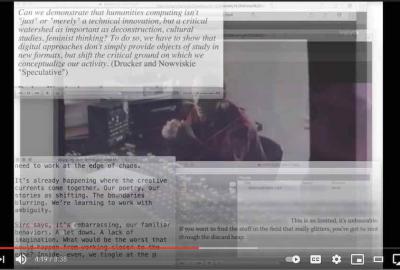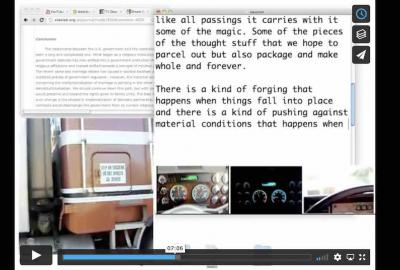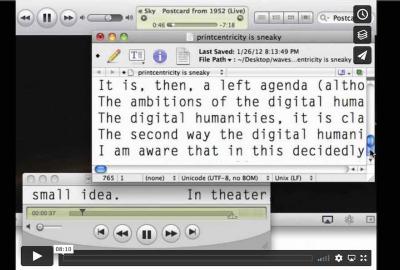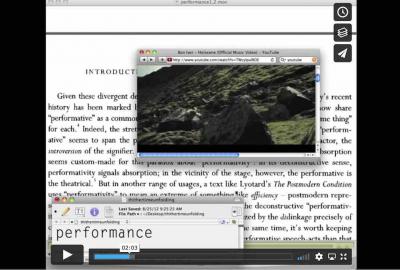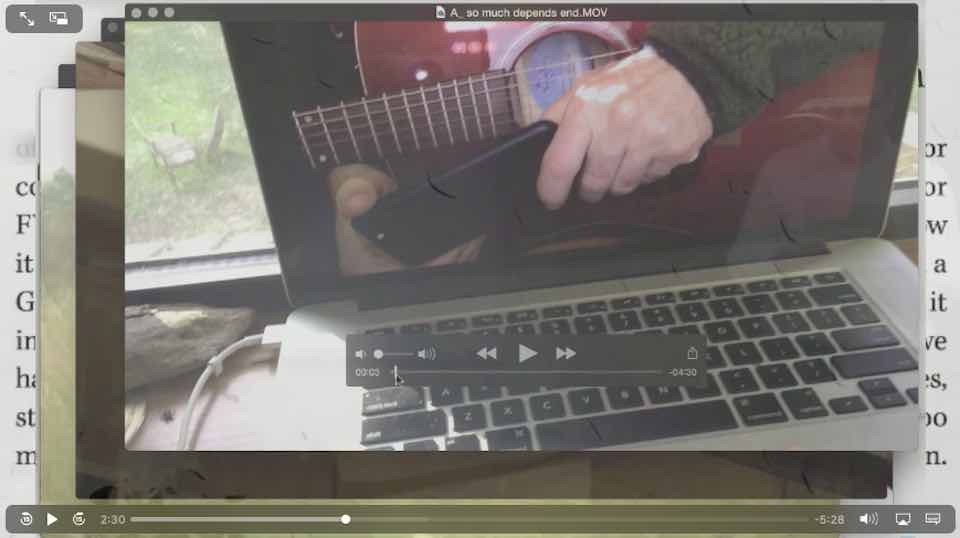-
Affirmative
It is all about the yes-and. Too much scholarship is based on arguing against the ideas of others. What if there are other possibilities that we overlook?
-
Speculative
When we know in advance our questions and conclusions, we reinscribe rather than reinvent knowledge. Can scholarship itself become emergent and open-ended?
-
Embodied
We lose something when we cordone scholarship off to intellectual realms only. Emotion, performative modes, and physical response can open channels for scholarship.
-
Material
Engaging with the material world has long been a part of scholarship. What happens when we forground the material aspects of composing as we theorize?
Moonmoth (Recast from the poem by Elizabeth Bishop)
It's a moving thing
With a leaf for a wing
It's a moon moth
It's the silhouette
You make when you get
Near the sky
It's the ceaseless track
That keeps bringing you back
To the night
It's another year every year
And you never hear
Anyone cry
It's the place that you stand
With your hat in your hand
In the light
It’s a single tear
And it’s crystal clear
As it longs to escape from your eye
And you turn 17
And you turn 59
And you turn and you turn
And you try
It's another year every year
And you never hear
Anyone cry
It’s a scene from a dream
And it floats through your screen
It’s a moon moth
It’s the way you return
To the lesson you learn
In goodbye
It's the endless scrawl
When you’re crawling the wall
To get high
It's another year every year
And you never hear
Anyone cry
